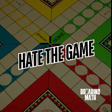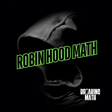
55: Order in the Court (Transfinite Ordinal Numbers)
As a child, did you ever have a conversation that went as follows:
"When I grow up, I want to have a million cats"
"Well I'm gonna have a billion billion cats"
"Oh yeah? I'm gonna have infinity cats"
"Then I'm gonna have infinity plus one cats"
"That's nothing. I'm gonna have infinity infinity cats"
"I'm gonna have infinity infinity infinity infinity *gasp* infinity so many infinities that there are infinity infinities plus one cats"
What if I told you that you were dabbling in the transfinite ordinal numbers? So what are ordinal numbers? What does "transfinite" mean? And what does it mean to have a number one larger than another infinite number?
[Featuring: Sofía Baca; Diane Baca]
Ways to support the show:
Become a monthly supporter at patreon.com/breakingmath
This episode is released under a Creative Commons attribution sharealike 4.0 international license. For more information, go to CreativeCommoms.org
This episode features the song "Buffering" by "Quiet Music for Tiny Robots"



















